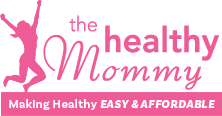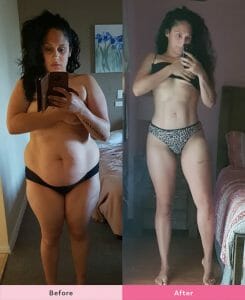How Many Calories Do I Need Every Day To Lose Weight?
Calories can be CONFUSING.
On our 28 Day Weight Loss Challenge, we don’t generally advocate strict calorie counting as it can be stressful and exhausting to monitor everything you eat and then obsess about the calorie content of everything you consume each day.
Instead, our focus is on healthy foods that are nutrient dense – which in turn keep you feeling fuller for longer.
But we do understand that for lots of moms, calorie counting is king!
There is a lot of confusion about how many calories to consume, so we thought we would cover that question here.
Firstly, many diet plans tell you to eat less than 1,200 calories and people can get hung up on this number.
If you are trying to lose weight, it is important to work out your BMR to see how many calories your own body needs and then work out your body’s daily energy requirements; you can work out both on the 28 Day Weight Loss Challenge app.
How Many Calories a day
The 1,200 calories a day number is VERY broad and is a very low number. And as everyone has a different BMR and energy needs, there is not a ‘one size fits all’ calorie or kilojoule allowance to follow.
Whereas some people may have a BMR and energy needs that is 1,200 calories a day – the fact is that most people do not. This in itself sets you up to fail on your weight loss. 1,200 calories can have a number of negative effects – such as:
- If your energy and calorie needs are higher, you will be hungry all the time
- If your energy and calorie needs are higher, you may feel faint/weak and tired all the time
- If your energy and calorie needs are higher, your body may go into starvation mode and not lose weight at all – this is dangerous as a lack of calories can interfere with your metabolism and cause long term issues
- You may find it impossible to stick to and fall of the healthy eating wagon as the diet was just too hard – which is why so many fail at losing weight
The fact is that if you work out your BMR and daily energy needs you will find it a lot easier to lose weight and find weight loss a lot more sustainable.
One of the BIG reasons our 28 Day Weight Loss Challenge works is that we make the meal plans sustainable. So for example – we do not set a 1,200 calorie food limit. Our 28 Day Weight Loss Challenge is approximately 1,500 and you have the flexibility to increase calories or decrease accordingly if you are hungry or full – or breastfeeding.
Please note that breastfeeding mothers on average require an extra 500 calories (2,200 kilojoules) per day on top of their usual daily energy needs.
What is the low down on BMR & BMI
Body Mass Index (BMI)
This is one measure used to estimate your total amount of body fat. It is calculated by dividing your weight in kilograms by your height in meters squared (m2). It is a useful tool as it gives you a starting point as well as goals for the future. For instance, you might work out that you need to lose five pounds to get into a healthy weight range.
Basal Metabolic Rate (BMR)
Your BMR tells you the number of calories (energy) your body burns when at rest (even when sleeping) just to fuel its normal metabolic activity, such as organ function, breathing, and digestion. You can use the number to then determine a safe level of reduced daily calories to achieve and maintain a healthy weight.
Your BMR decreases as you age, so it becomes harder to stay slim as you get older. Likewise, depriving yourself of food in the hope of losing weight also decreases your BMR – a trap many people fall into – so it’s important not to consume calories below your recommended BMR. However, a regular routine of cardiovascular physical activity, muscle-building physical activity, and regular meals and snacks can increase your BMR. It is important to improve your health and fitness when your body’s ability to burn energy gradually slows down.
The two numbers are closely related – the higher the BMI, the higher the BMR tends to be. You can work yours out using the challenge app.
It’s important to remember that your lifestyle is more important than your BMI and BMR as these figures are only guidelines. If you’re unsure whether or not your current weight is healthy, speak with your doctor.
Calories & Kilojoules
Kilojoules and calories are just two different measures of the same thing: energy. One calorie equals approximately 4 .2 kilojoules and to convert calories to kilojoules, you can simply multiply the calorie count by 4.2.
How many calories or kilojoules we should eat depends on what our individual BMR is – and as mentioned above, as everyone has a different BMR, there is not a ‘one size fits all’ calorie or kilojoule allowance to follow.
Nutrient Dense calories
Another key point is to ensure that the calories you are consuming are nutrient-dense calories so that as well as giving your body the energy and fuel it needs to function, you are also providing your body with essential vitamins and minerals to help it to be in its best health.
Please note that breastfeeding mothers on average require an extra 500 calories (2,200 kilojoules) per day on top of their usual daily energy needs.
If you are trying to lose weight when breastfeeding, we recommend a gradual weight loss rather than trying to shift it very quickly.
So we hope that this helps clear things up – and losing weight doesn’t have to be painful. If you follow a sensible weight loss plan that lets you eat enough food and that is also sustainable, not only will you be able to lose weight whilst continuing your job as a busy mom, but you will also be able to keep it off as you didn’t have to resort to drastic and unhealthy methods to lose it.
Are you ready to become a Healthy Mommy?

Our Challenge is designed by moms FOR MOMS – to help them reach their goal weight and tackle their health and fitness.
The Challenge is home to customizable meal plans, 24/7 social support and realistic exercises moms can do AT HOME.
To find out more on the 28 Day Weight Loss Challenge click here.
*Images and references to pounds lost are as supplied by the individual in the story. The Healthy Mommy assumes information and photographs supplied to be true in nature and is not responsible for any false misrepresentations or claims relating to their programs or products.




